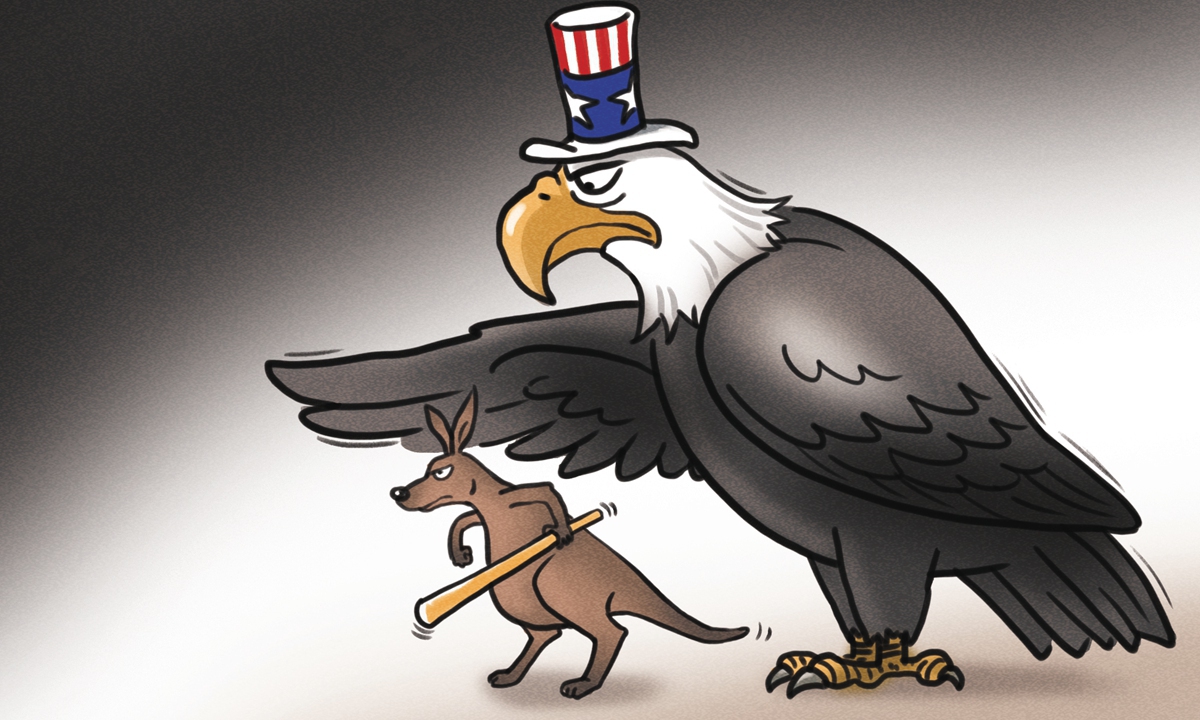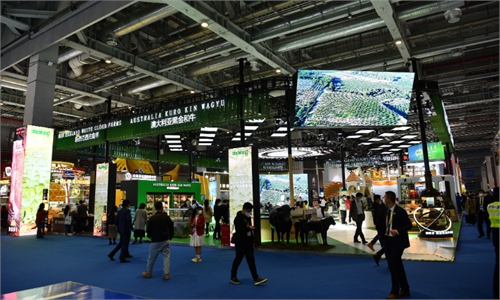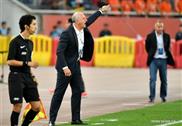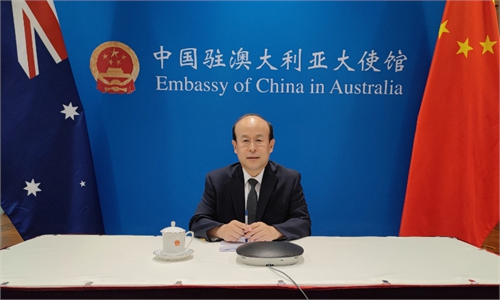Chinese FM urges Australia to stop official exchanges with Taiwan island; delegation visit ‘doomed to end with nothing substantive’

Australia US Illustration: Liu Rui/GT
A Chinese Foreign Ministry spokesperson on Tuesday urged Australia to earnestly adhere to the one-China principle, stop all forms of official interactions with the Taiwan region and stop sending wrong signals to "Taiwan independence" forces, in response to the visit of a bipartisan delegation of Australian politicians to the island of Taiwan despite the recent warming of China-Australia ties.
Mao Ning, spokesperson for the ministry, made the remarks at a regular press briefing on Tuesday. She noted that Taiwan is an inalienable part of China's territory. The one-China principle is a universally recognized norm in international relations and is the prerequisite and political foundation for the development of friendly relations between China and other countries.
Mao's remarks came after an Australian delegation of six federal members of parliament (MPs) from the Coalition and Labor arrived in Taiwan island by air on Sunday. The delegation is reportedly scheduled to meet Taiwan regional leader Tsai Ing-wen and the island's senior official in charge of external affairs Joseph Wu.
According to local media on the island, the Taiwan authorities have kept the visit low key with the spokesperson for the island's external affairs authority saying on Tuesday that they would not reveal any details about the trip.
While it remains unclear whether the low-pitched response came as the reckless visit has sparked strong opposition from the Chinese mainland, Australian Prime Minister Anthony Albanese has been urged to express explicitly his opposition to the visit that is provocative to Beijing.
On Saturday at a press conference, Albanese tried to distance himself from the delegation by stressing the trip is not by the government and he "has no idea" of the trip's intention.
Chinese observers criticized Albanese's vague and cop-out remarks for being insincere on improving Canberra's relations with Beijing, as they will undoubtedly encourage the arrogance of anti-China forces and pro-Taiwan secessionist forces in Australia.
The trip echoes the pro-Taiwan secessionist forces in Australia and the world, and tries to hollow out the one-China principle, observers said.
The trip exposes that within the Australian government there are anti-China forces trying to obstruct the improvement of Beijing-Canberra ties at a time when ties are moving toward detente. Although the trip is not expected to be put in the same class as US house speaker Nancy Pelosi's provocative visit to the island of Taiwan in August, there is a big question mark over Australia's sincerity in improving relations with China, they said.
If the hard-won warming of China-Australia ties are harmed by such reckless moves, the national interests of Australia will again suffer, and Canberra will take the consequences, Chinese observers warned.
Ahead of the 50th anniversary of the establishment of diplomatic relations between China and Australia which falls on December 21, the delegation's visit damaged the improving atmosphere between the two countries, Chen Hong, president of the Chinese Association of Australian Studies and director of the Australian Studies Center at East China Normal University, told the Global Times on Tuesday.
Those who play with fire will perish by it. The politicians from certain countries who visit Taiwan to seek limelight are like political god of plague and pestilence. They bring nothing but risks and tension to Taiwan and no benefit to their own countries, and they also hijack their own countries' China policy. As the Australian MPs' Taiwan visit is under way, it has already generated negative impacts on the China-Australia relationship.
Last month, on the sidelines of the G20 summit in Bali, Indonesia, Chinese and Australian heads of state conducted a face-to-face meeting in a significant breakthrough in relations.
Chen pointed out that during the past few years, the bilateral relationship had been at a low ebb, and some Taiwan secessionists in the island were trying to take advantage, wooing anti-China forces in Australia to gain political leverage.
During the trip, Taiwan authorities are expected to lobby Australia for support so it can join a regional trade pact, Australian media outlet ABC reported.
However, Chen believed that the efforts would be in vain, citing Albanese's recent remarks which have suggested Australia is very unlikely to support the Taiwan region's push to join the Comprehensive and Progressive Agreement for Trans-Pacific Partnership (CPTPP).
Speaking at the APEC meeting in Bangkok, Albanese said the agreement was only for "recognized" nation-states, rather than economies. "Taiwan is represented here (at APEC) as an economy," the Australian prime minister noted, according to an ABC report on November 18.
The trip led by former deputy prime minister Barnaby Joyce and other non-power-holders is no more than an eye-catching event, which is doomed to end with no substantive outcomes, Chen said.




